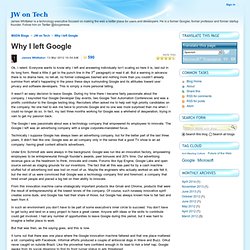

Innovation, Strategy, and your Innovation Strategy. What’s your innovation strategy?

The question often stumps executives, who tend to think innovation is something outside the normal work routines, not something that can and should be directed. Yet how much of your company’s strategic plan depends on innovation — on the development of new products, new processes, or (often) both — that will provide tomorrow’s competitive advantage? Most of a company’s strategic plan is about re-allocating investments in existing activities: growing the marketing budget in South America, shifting manufacturing capacity to Asia (or now back to the U.S.), shuttering underperforming units. And yet a non-trivial portion of almost everyone’s strategic plan includes innovation-driven growth. Not just doing more of the same thing, but doing new things. In one consumer goods company, for example, the overall growth strategy called for $2 billion in growth over the next five years, and innovation — “new products” — accounted for roughy 50% of that growth .
The Web Is Dead? A Debate. O’Reilly to Anderson: It’s the back end that matters.

While there’s no question that both Facebook and the mobile app ecosystem provide clear challenges to “the web,” the idea that the browser front end was ever the key to the web’s dominance is so, well, 1995, from the days when Netscape thought that the “webtop” would displace the desktop. But the competitive action has always been on the internet as transport, with data-driven services as the back end. Back when I put on my first conference, the Perl Conference, in 1997, I was already talking about how the internet was becoming a vast repository of programmable services, that screen scraping and overloaded URLs were pointing towards a future internet operating system. And when I put on my “Building the Internet Operating System” conference in 2002, I was already focusing on how Peer-to-Peer distribution, distributed computation, and web services were pointing forward to something much bigger than we’d seen before.
Why I left Google - JW on Tech. Ok, I relent.

Everyone wants to know why I left and answering individually isn’t scaling so here it is, laid out in its long form. Read a little (I get to the punch line in the 3rd paragraph) or read it all. But a warning in advance: there is no drama here, no tell-all, no former colleagues bashed and nothing more than you couldn’t already surmise from what’s happening in the press these days surrounding Google and its attitudes toward user privacy and software developers. This is simply a more personal telling. It wasn’t an easy decision to leave Google. The Google I was passionate about was a technology company that empowered its employees to innovate. Technically I suppose Google has always been an advertising company, but for the better part of the last three years, it didn’t feel like one. Under Eric Schmidt ads were always in the background. In such an environment you don’t have to be part of some executive’s inner circle to succeed.
Suddenly, 20% meant half-assed.